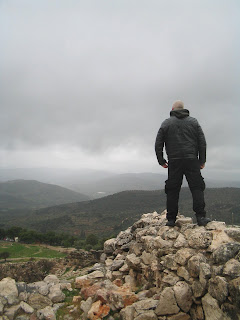IMIA 2011 - The Annual march organized by GOLDEN DAWN. A night dedicated to the fallen Heroes of Hellas.
Pics and video below from the march that took place in Satuday, 29th of January:






























Burzum "Fallen" 2011
Byelobog Productions
Tracklist:
Title English
Fra Verdenstreet From The World Tree
Jeg Faller I Am Falling
Valen Fallen
Vanvidd Madness
Enhver Til Sitt Each Man To His Own, meaning "Each Man Gets What He Deserves"
Budstikken The Message
Til Hel Og Tilbake Igjen To Hel And Back Again
Musically "Fallen" is like a cross between "Belus" and something new, inspired more by the début album and "Det Som Engang Var" than by "Hvis Lyset Tar Oss" or "Filosofem". The sound is more dynamic – we mastered the album as if it was classical music – and I was more experimental than I was on "Belus" in all respects. Lyricwise it is similar to the début album, in the way that it is more personal and focuses on existential issues, but the mythological untertone known from "Belus" is still there. I have also included some ambient tracks – a short introduction and a longer conclusion.
"Fallen" was recorded and mixed during two weeks in Grieghallen studios, using a Spectar bass with alembic electronics on a VOX AC50 amp from 1965, a Ludwig drum kit (with a 26 inch kick) from 1975, a Neumann M149 microphone and stereo Schoeps CMTS 501 U microhpones for vocals, an OBH Nordica Harmony 6487, a custom Stig instrument and a Peavey 23 guitar on a Peavey 6505 (120 Watt) amp.
The picture on the front cover of "Fallen" is a part of a painting, "Élégie" (Eng. "Elegy"), by William Adolphe Bouguereau.
PS. Yes, both "Fallen" and "Valen" translates into English as "Fallen".
"Fallen" will be released worldwide on Byelobog Productions on the 7th March 2011.
OFFICIAL BURZUM WEBSITE : http://burzum.org/
BYELOBOG PRODUCTIONS: http://byelobog-productions.burzum.org/






